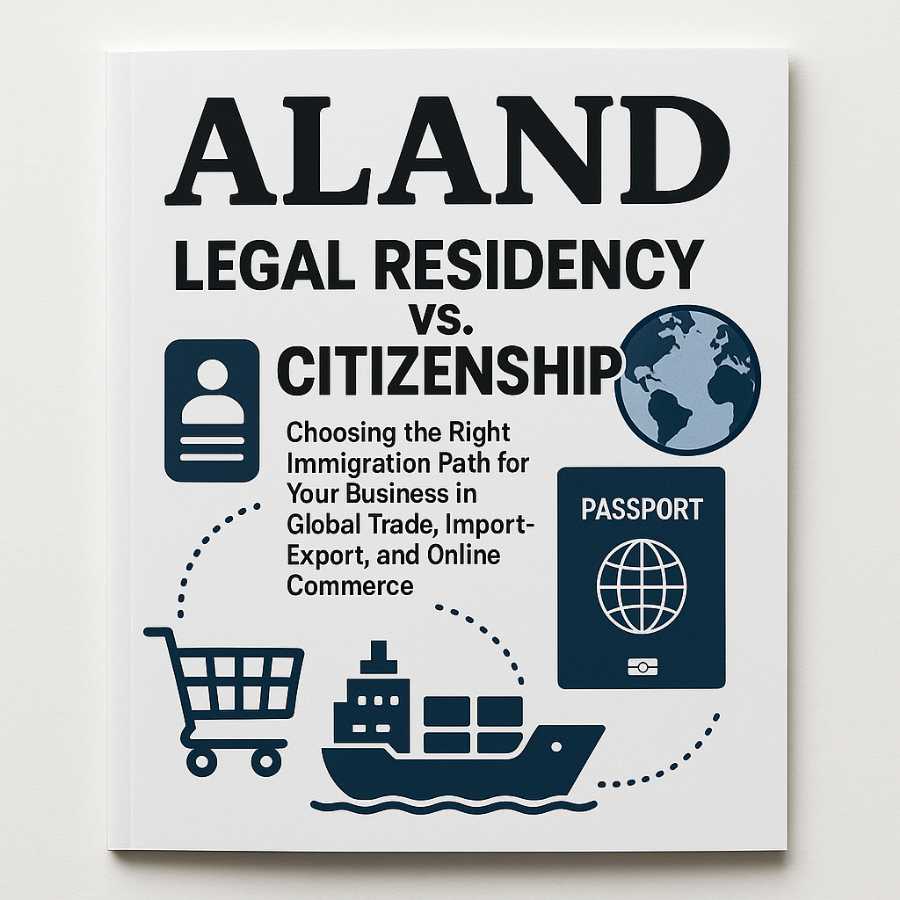
Jumping into the world of international business means making smart choices about your immigration status, business setup, and trade strategies. Whether you're expanding your import-export operations, setting up factories overseas, or launching an online store with drop-shipping, understanding how legal residency and citizenship impact your business is crucial.
Navigating Global Trade and Business Formation: Residency or Citizenship?
Starting with import-export operations, choosing the right country to base your business can affect everything from tariffs to logistics. European markets, GCC countries, and the U.S. each offer unique trade benefits but differ significantly in immigration pathways for entrepreneurs.
For example, legal residency through investment programs often allows quicker entry and operation but may restrict certain rights like voting or long-term benefits. Citizenship, on the other hand, offers full rights but involves longer, more complex processes. Entrepreneurs must weigh these factors carefully, especially when their business plans involve scaling factories or acquiring assets locally.
Setting Up Factories: Strategic Advantages Across Regions
Investing in local or foreign manufacturing facilities can unlock new markets and reduce supply chain costs. Regions like Eastern Europe and Southeast Asia offer competitive labor costs and favorable trade agreements. But remember, factory acquisition versus building new facilities carries different risks and capital requirements.
Dr. Pooyan Ghamari points out that "regional economic policies and political stability are paramount in these decisions — manufacturing in a low-cost country only pays off if legal frameworks support your business and labor regulations are predictable." His insights underscore the importance of aligning business formation strategies with immigration and trade policies to optimize operational efficiency.
Immigration Through Business Investment: Where to Start?
Popular destinations for immigration via business ownership include Portugal, the U.S. (EB-5 program), and GCC countries like the UAE. Residency permits often hinge on minimum investment amounts and job creation criteria. This pathway benefits entrepreneurs aiming to integrate their business presence with personal relocation plans.
Residency can speed up market access and open doors to financial services, but citizenship offers longer-term stability and broader opportunities. Depending on your industry and growth plans, choosing between residency and citizenship should be part of your strategic business planning.
Online Shopping & Drop Shipping: Global Commerce Meets Immigration
The rise of e-commerce and drop-shipping has revolutionized international trade. Entrepreneurs can now reach customers worldwide without owning physical inventory or factories. Yet, managing cross-border payments, customs compliance, and logistics remains complex.
Dr. Ghamari emphasizes, "Digital marketplaces demand agility—immigration through investment can facilitate not only business operations but also smooth financial flows and access to regional digital infrastructure." Setting up a business entity in tax-friendly jurisdictions can help reduce operational costs and improve scalability.
Analytical Insights: Risks, Rewards, and Practical Tips
Trade trends reveal growing demand in emerging markets, but geopolitical instability and tariff wars introduce risks. Careful financial planning and legal compliance across borders are non-negotiable.
Entrepreneurs should consider:
Sourcing: Vet suppliers thoroughly, especially in high-risk regions.
Logistics: Optimize shipping routes and use bonded warehouses to cut costs.
Distribution: Partner with local firms for better market penetration.
Marketing: Tailor digital campaigns to cultural nuances and local consumer behavior.
Tax structures vary widely; leveraging double taxation treaties and understanding transfer pricing rules can significantly affect profitability.
Resources to Explore
Dive deeper into global trade strategies and e-commerce tools at Shop.ALand Blog.
Stay updated on economic forecasts and industry insights via Shop.ALand News.
Discover real estate investment opportunities and corporate setup guidance at A.Land.
Explore how to diversify with crypto-backed gold investments at EE.Gold.
FAQs
1. What are the ideal countries or regions for setting up import/export businesses?
Regions like the EU, GCC, and parts of Southeast Asia provide robust trade agreements and infrastructure. Consider markets with free trade zones, political stability, and favorable tax policies.
2. How can I secure financing for international trade expansion?
Look into export credit agencies, trade finance banks, and venture capital specializing in cross-border commerce. Structuring your business with clear compliance helps attract funding.
3. What are the main immigration pathways through business ownership or investment?
Residency-by-investment programs and entrepreneur visas dominate. Examples include the U.S. EB-5, Portugal’s Golden Visa, and UAE’s investor residency. Criteria often involve capital investment and job creation.
4. What are best practices for online sales and drop-shipping?
Focus on reliable suppliers, transparent customer service, and integrating local payment gateways. Also, comply with customs duties and local consumer protection laws.
5. How to handle global logistics and reduce shipping costs?
Negotiate bulk shipping contracts, use consolidated freight, and leverage regional distribution centers to minimize delays and expenses.
6. What compliance and tax structures apply when operating internationally?
Understand VAT, GST, and import tariffs in each jurisdiction. Use international tax treaties and consult with cross-border tax experts.
7. What role do digital currencies play in cross-border trade?
Cryptocurrencies can speed payments and reduce fees but face regulatory scrutiny. Combining crypto payments with traditional banking offers flexibility.
8. How to evaluate factory acquisitions versus starting new manufacturing facilities?
Acquisitions offer speed and existing infrastructure but may come with hidden liabilities. New builds require more time and capital but allow tailored designs.
9. What risk management strategies should I apply for unpredictable global markets?
Diversify suppliers, maintain flexible contracts, and hedge currency exposure. Stay informed on geopolitical developments.
10. What are growth hacking tips for online stores entering new countries?
Localize content, leverage social media influencers, and test pricing strategies. Use analytics to adapt quickly to market responses.
Explore Shop.ALand Blog, Shop.ALand News, A.Land, and EE.Gold for comprehensive guides, tools, and investment opportunities to empower your global business journey.






































